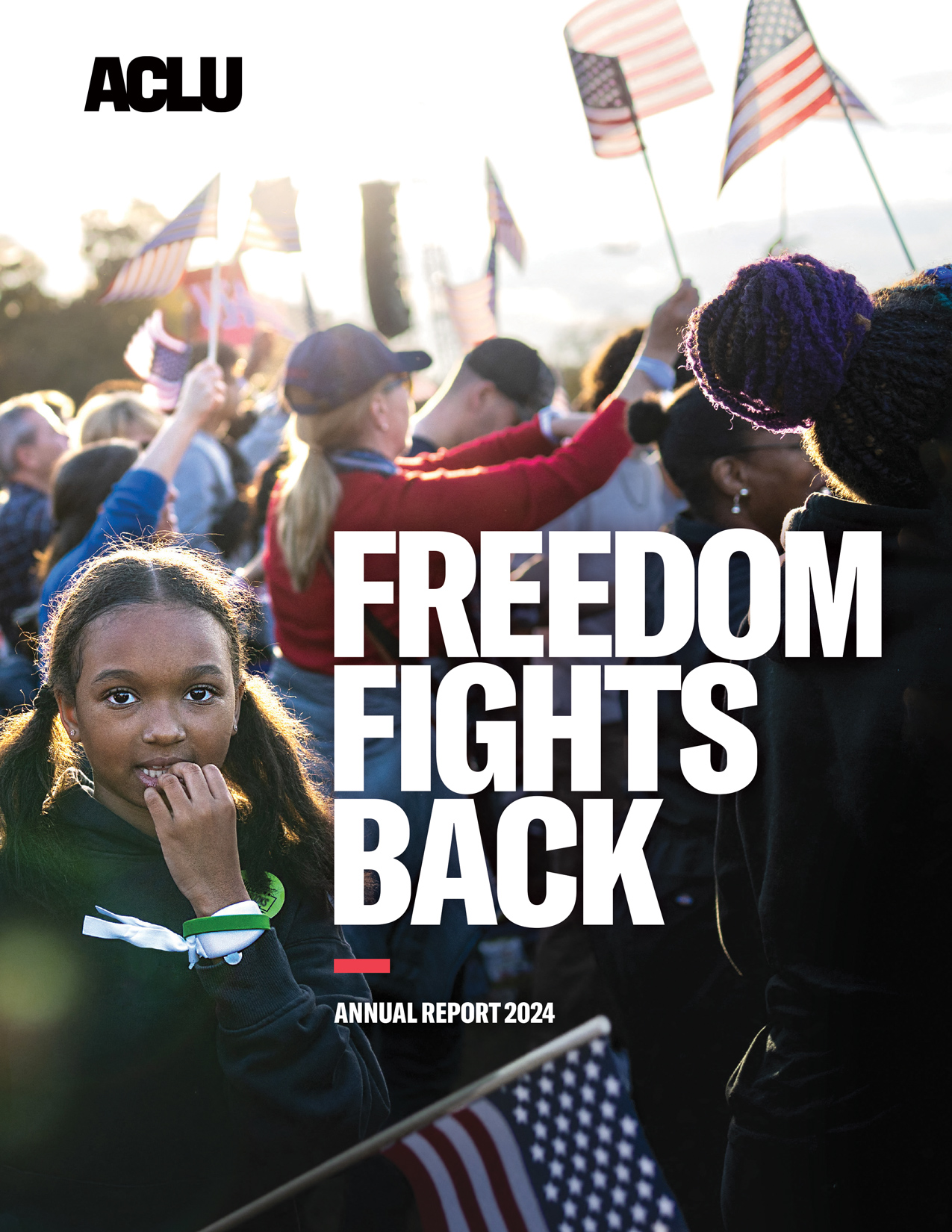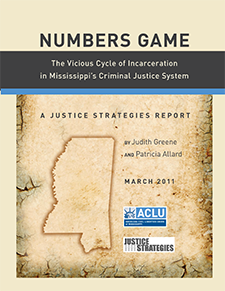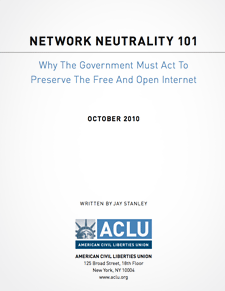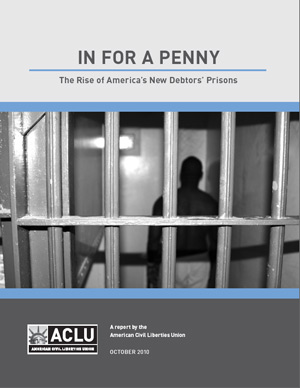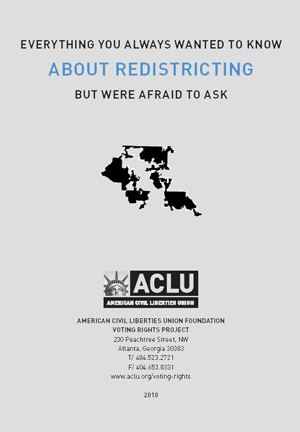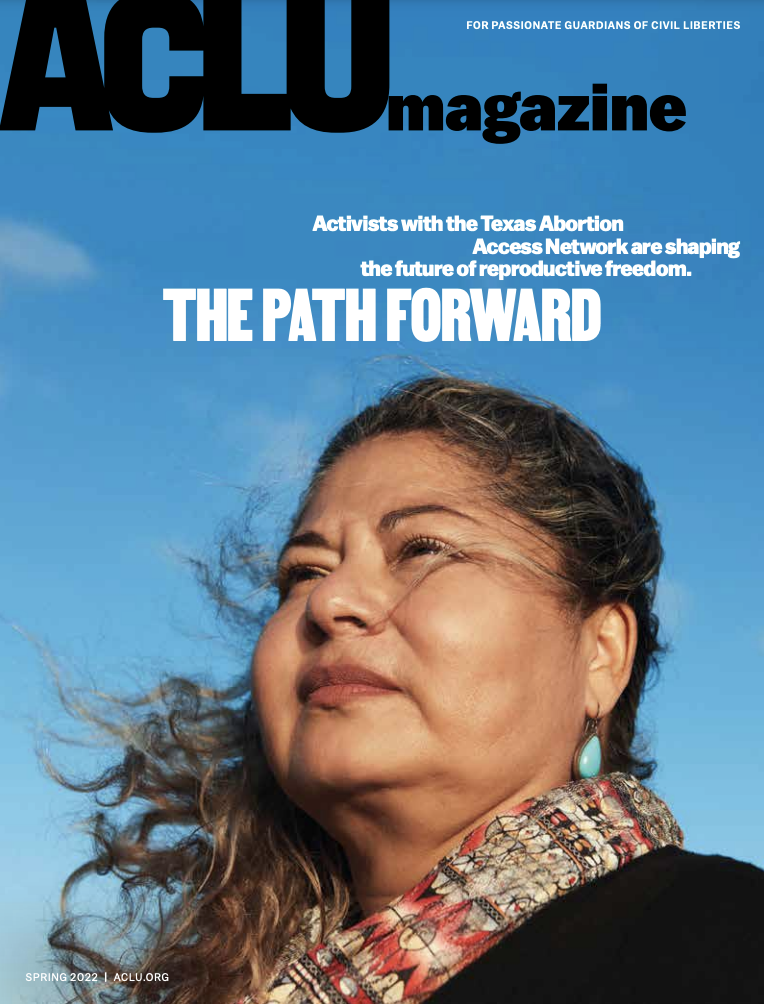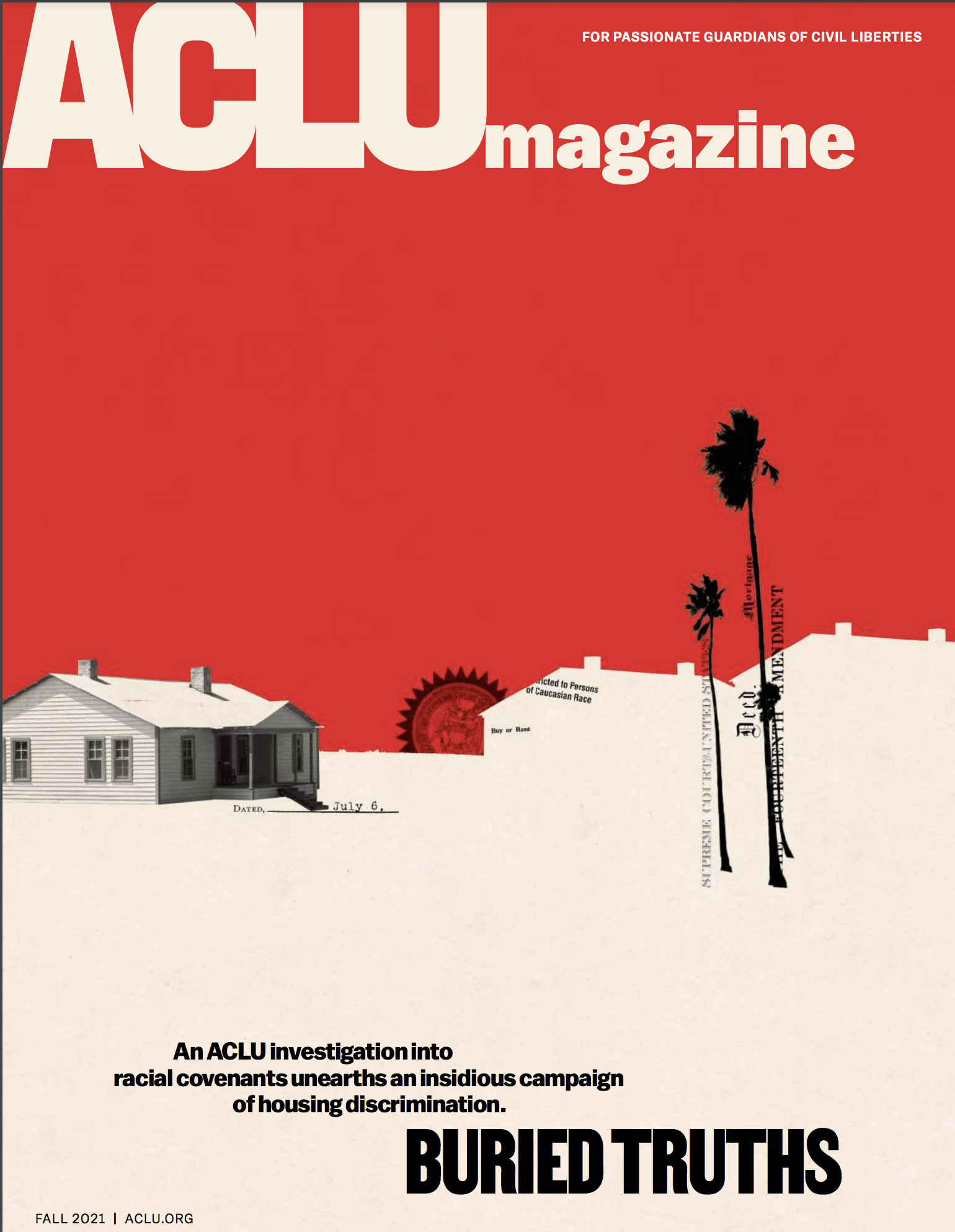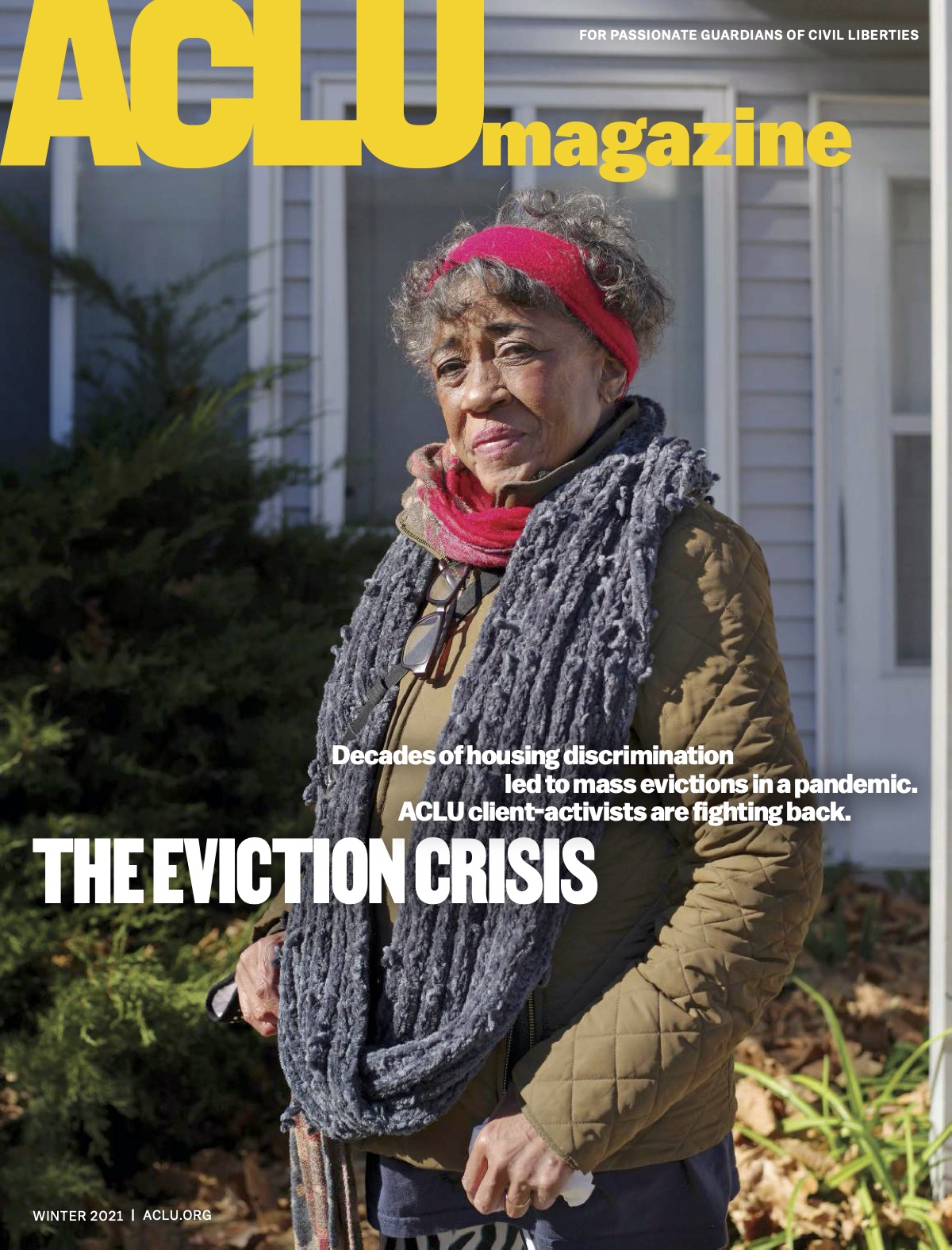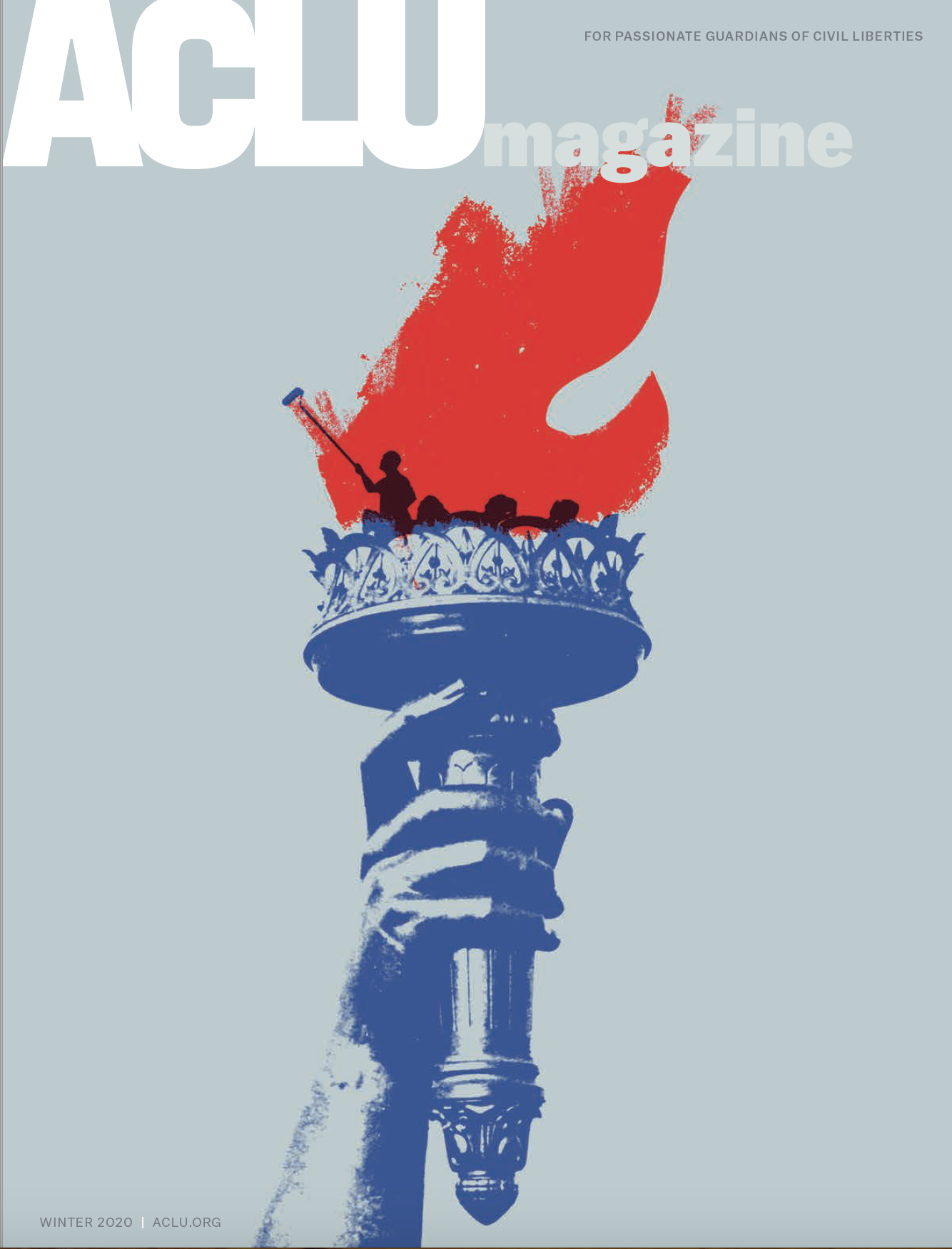Research & Publications
Access in-depth resources and analysis published by the ACLU regarding our most pressing civil liberties issues.
ACLU 2024 Annual Report
The ACLU’s 2024 annual report highlights how the organization worked around the clock this year to safeguard voting rights ahead of the November elections, protect bodily autonomy, defend free speech, and much more. Alongside breakdowns of the ACLU’s key wins and efforts throughout 2024, the report tells the stories of ACLU activists, advocates, and clients who are on the front lines of this fight.
All Publications
Search will open in a new tab using DuckDuckGo
Numbers Game: The Vicious Cycle of Incarceration in Mississippi's Criminal Justice System
The people of Mississippi deserve and demand crime policies that promote public safety, treat people fairly — regardless of the size of their pocketbook or the color of their skin — and use public resources wisely.
Unfair, ineffective, financially unsustainable, and counterproductive — these area all terms that, regrettably, apply to significant aspects of Mississippi's criminal justice policy. Mississippi's drug law enforcement infrastructure is fundamentally flawed and in dire need of reform. This report undertakes a review and analysis of some of the most troubling aspects of the state's criminal justice system, with a particular focus on drug law enforcement, and offers recommendations for reform. It is our hope that the findings will both further existing reform efforts and catalyze action towards additional change.
We will begin with a look at Mississippi's overly harsh sentencing policies, which have produced skyrocketing incarceration rates at unsustainable cost, with little benefit to public safety and a host of negative consequences. Next, we will investigate the conduct of Mississippi's expansive Multi-Jurisdictional Drug Task Forces and the illogical funding mechanisms that lead them to pursue large numbers of low-level offenders, with predictably poor results. Then, we will turn our attention to the rampant use of confidential informants — primarily to apprehend smalltime, nonviolent drug offenders. In addition to identifying why the use of confidential informants fails to achieve law enforcement's basic goals, we will uncover the destructive consequences of Mississippi's informant practices — examining how the largely unregulated and unmonitored informant system harms innocent individuals, erodes the rule of law, unravels the social fabric, and disproportionately impacts African American communities. Finally, we will document stories from Mississippi and beyond that illustrate both the extent and the depth of injustice in today's drug enforcement tactics.
Throughout the report, we will witness how these three broken aspects of Mississippi's criminal justice system interact, generating a vicious cycle of perverse incentives that must first be acknowledged in order to be properly addressed. At base, Mississippi's criminal justice system has come to be defined by a logically, morally and, increasingly, financially bankrupt "numbers game" that prizes above all else arrest and incarceration of as many as possible for as long as possible.
Promoting Opportunity and Equality in America
A Guide to Federal Circuit Authority on Permissible Government Actions to Promote Racial and Gender Equality
In support of our ongoing efforts to expand opportunity in the United States, the American Civil Liberties Union (ACLU) and The Opportunity Agenda have published a report entitled, “Promoting Opportunity and Equality in America: A Guide to Federal Circuit Authority on Permissible Government Actions to Promote Racial and Gender Equality.”
The goals of this report are twofold: (1) it discusses the law within each judicial circuit of the U.S. for governmental entities who are attempting to remedy discrimination by using racial or gender classifications in the allocation of government contracts; and (2) it is a user-friendly tool that will allow state and local policymakers to assess how they may properly allocate economic recovery funds, specifically, in a way that ensures that the distribution is equitable.
Distributing economic recovery funds in an equitable manner is particularly important given statements issued by both the Office of Management and Budget and the Office of the Attorney General, which explicitly state that all nondiscrimination laws apply to programs receiving funds under the American Recovery and Reinvestment Act (ARRA).
We hope this legal resource will be useful to you, your organization, and the policymakers with whom you work.
Network Neutrality 101: Why the Government Must Act to Preserve the Free And Open Internet
The Internet has become a deeply ingrained in the lives of most Americans. It looms so large, in fact, it is easy to imagine that it is immune to change — that it will always remain the free and open medium that it is now. But there are no such guarantees. The Internet is a human institution, operated by real individuals and companies, and like most human institutions it is not static and unchanging. In fact, the history of the Internet as a mass public communications medium has been marked by two stages — and ongoing changes to the underlying architecture of the Internet, combined with a recent landmark court decision, may now be bringing us into a third stage.
In For a Penny: The Rise of America's New Debtors' Prisons
This ACLU report presents the results of a yearlong investigation into modern-day "debtors' prisons," and shows that poor defendants are being jailed at increasingly alarming rates for failing to pay legal debts they can never hope to afford. The report details how across the country, in the face of mounting budget deficits, states are more aggressively going after poor people who have already served their criminal sentences. These modern-day debtors' prisons impose devastating human costs, waste taxpayer money and resources, undermine our criminal justice system, are racially skewed, and create a two-tiered system of justice.
Incarcerating people simply because they cannot afford to pay their legal debts not only is unconstitutional but it has a devastating impact upon men and women, whose only crime is that they are poor. The sad truth is that debtors' prisons are flourishing today, more than two decades after the Supreme Court prohibited imprisoning those who are too poor to pay their legal debts. This report seeks to document the realities of today's debtors' prisons and to provide state and local governments and courts with a more sensible path – one where they no longer will be compelled to fund their criminal justice systems on the backs of the poor, and one where the promise of equal protection under the law for the poor and affluent alike will finally be realized.
Table of Contents
Key Findings...5
Recommendations...11
METHODOLOGY AND ACKNOWLEDGEMENTS...13
LOUISIANA...17
II. Special Focus: New Orleans' Broken Funding Scheme for Its Criminal Justice System...25
III. Recommendations...28
MICHIGAN...29
I. LFOs in Michigan...29
II. Special Focus: Michigan's Recent Shift Toward Aggressive Collections...38
III. Recommendations...41
OHIO...43
I. LFOs in Ohio...43
II. Special Focus: Ohio's Municipal & Mayor's Courts and "Pay-to-Stay" Programs...52
III. Recommendations...54
GEORGIA...55
I. LFOs in Georgia...55
II. Special Focus: Georgia's For-Profit Probation Companies...59
III. Recommendations...64
WASHINGTON...65
I. LFOs in Washington State...65
III. Recommendations...79
CONCLUSION...81
Everything You Always Wanted To Know About Redistricting But Were Afraid To Ask
This is the second edition of our pamphlet which attempts to answer some of the questions most frequently asked about redistricting. The law in the voting area is always evolving and different courts often interpret the same laws differently. If you have a specific question about redistricting or a problem not adequately covered in this pamphlet, you should seek legal advice.
Redistricting is not something best left to the politicians and the experts. Every voter has a vital stake in redistricting because it determines the composition of districts that elect public officials at every level of government. Given the advances in modern map drawing technology, it is now possible for everyone to participate directly in the redistricting process. But to be an effective player, you need to know the rules of the game which are discussed in this pamphlet.
For more information or assistance in redistricting, contact the ACLU’s Voting Rights Project or the other organizations listed in the appendix at the end of this pamphlet.
ACLU Magazine
Published twice a year, ACLU Magazine shares updates on the ACLU's critical litigation and advocacy work across the country and tells the stories of the activists, attorneys, and clients at the heart of each case and campaign. To receive ACLU Magazine by mail, become a monthly donor today.
Stay informed
Sign up to be the first to hear about how to take action.
By completing this form, I agree to receive occasional emails per the terms of the ACLU's privacy statement.
By completing this form, I agree to receive occasional emails per the terms of the ACLU's privacy statement.
